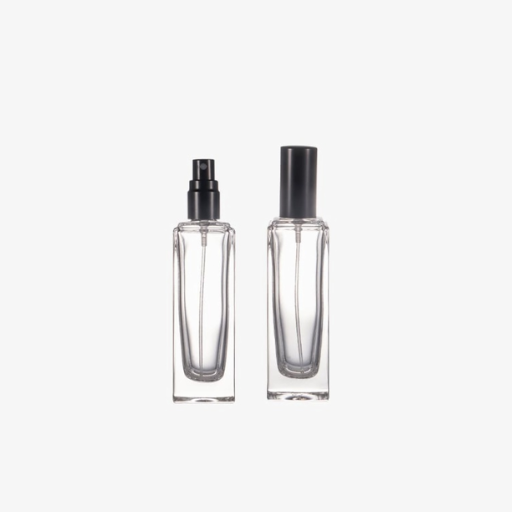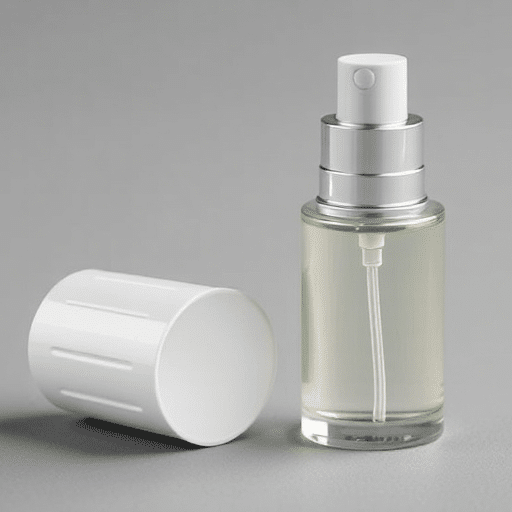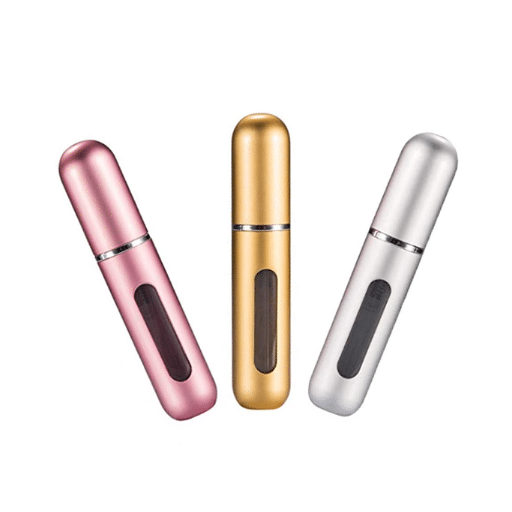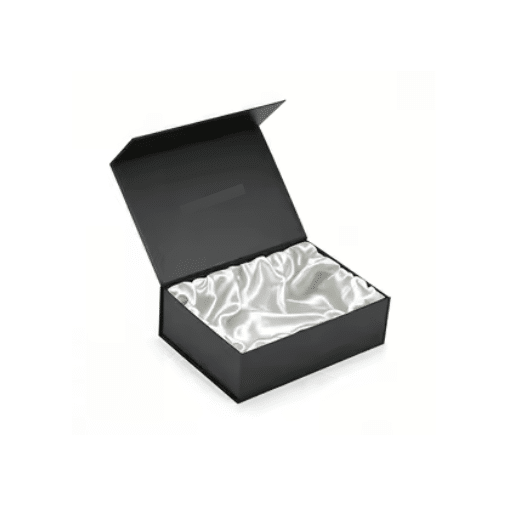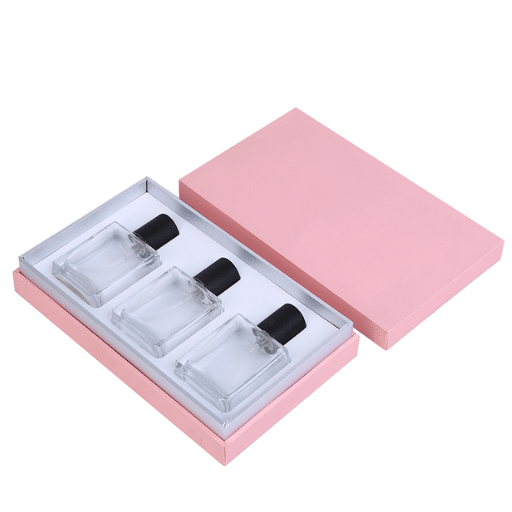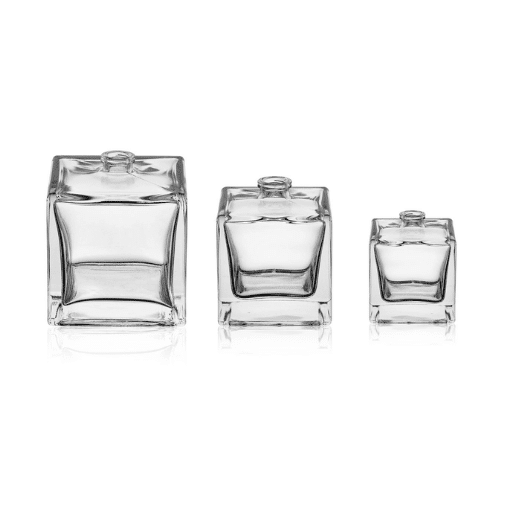Having perfume knowledge can significantly help you maximize its use. While most people think of perfume application as simply spraying and forgetting about it, there is much more to it than meets the eye. There are areas on the body, commonly called “pulse points,” where perfume is seen as ideal. However, these areas can ruin your fragrance, cause skin irritation, or trigger unwanted reactions. This blog focuses on the seven key areas you should avoid when applying your favorite scent. In the process, we bring expert tips and tricks to ensure your scent lasts throughout the day, smells phenomenal, harmonizes with your body, and does not clash with your body chemistry. Secrets revealed on more innovative scent application strategies will have you returning, so stay tuned!
Why are specific pulse points off-limits for perfume applications?
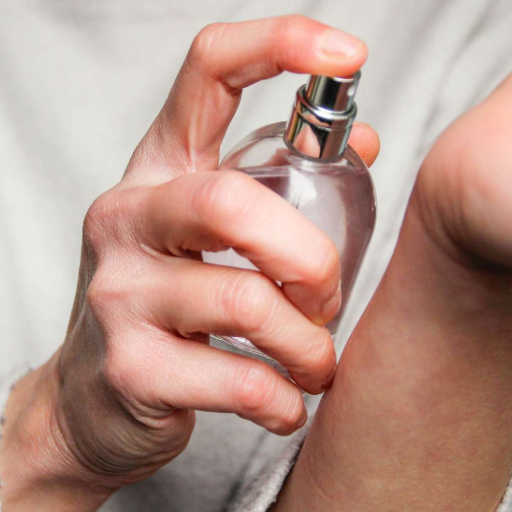
Some pulse points are a no-go for perfume application as they can be idiosyncratic or change the fragrance in unappealing ways. Places like the face, neck, or underarms may be more delicate, and sweating a lot can lead to an adverse reaction to the perfume and speed up its breakdown. Also, putting perfume on these places can frankly overdo it as far as scent is concerned. To achieve the right balance and experience with a fragrance, it is best to steer clear of these areas and focus on the recommended pulse points.
How alcohol-based fragrances can irritate sensitive areas
The high alcohol content of alcohol-based fragrances may lead to irritation on sensitive skin. This is because alcohol acts as a drying agent. When used on sensitive areas such as the face, neck, or broken skin, alcohol may remove natural oils, making the skin susceptible to redness, itching, or stinging. Dermatological research suggests excessive application of alcohol-based products can disturb the natural barrier of the skin, resulting in heightened sensitivity over time. People with conditions such as eczema or rosacea may experience intensified flare-ups or discomfort after using such fragrances. For those trying to reduce irritation, using low-alcohol or alcohol-free options is best, and avoiding exposure to sensitive or reactive areas of the skin is recommended.
Understanding why some pulse points absorb scent differently
Pulse points are areas of the body where blood vessels are closer to the skin surface, like the wrists or neck. They radiate heat, which helps to slightly warm and thus enhances the fragrance’s performance. However, not all pulse points absorb or radiate scent equally because of skin variation, thickness, oiliness, moisture, and temperature. Below is the list of key pulse points along with their main features:
- Wrists
The wrist is a very popular area for applying fragrance. The skin on the wrists is relatively thin and has good blood circulation, which allows veins to warm the scent. As a result, scent diffuses efficiently. However, hand washing may force the fragrance to fade faster.
- Behind the Ears
This body part generates reasonable temperature, ensuring the scent stays stronger while flowing outwards. Also, people seldom go outdoors, meaning the smell around this area will last longer.
- Neck (Throat area)
The neck has one of the warmest pulse points. Applying this part ensures the scent can waft upwards and be deeply enveloping. Nevertheless, the more sunlight exposed, the quicker some notes will evaporate.
- Inner Elbows
Soft and warm skin is ideal for diffusing scents. The inner elbows are often overlooked, but their smooth skin and curves help protect the fragrance from wind or sweat.
- Behind the Knees
Though unconventional, this pulse point is handy as it is less exposed to external elements and benefits from constant heat. It is beneficial for long dresses for formal events.
- Ankles
Pulse points near the ankles are rarely used but can add an intricately positioned layer of scent. This is especially true for those who want a lighter fragrance that lingers as they move.
Understanding the characteristics of pulse points can help optimize fragrance application for durability and projection. Merging multiple application points also enables complex shifts in the scent’s development throughout the day.
The science behind perfume and body chemistry
Fragrance and body chemistry have a captivating relationship, which is a significant factor in how a particular fragrance develops in a person. A perfume comprises top, middle, and base notes, which all mesh uniquely with other individuals’ skin due to their pH, temperature, and moisture levels. It is said that a person’s skin acidity can either enhance or dampen particular notes of the fragrance. This means the perfume can be more floral, woody, or even musky than intended. Furthermore, oily skin captures scents better than dry skin, which can evaporate quickly.
Men and women conduct studies to understand the effect one’s hormones, diet, and even medication can have on “wearing” perfume during the day. Take, for instance, spicy and herbal fragrances that may have magnifying effects on warm skin – these owe their potency to a warm body. On the other hand, more chilly body temperatures may have a tanking impact on sharp, citrus notes. In addition, they claim that the amount of volatile organic compounds (VOCs) in perfumes like terpenes and esters dictates how fast the scent fades away into the atmosphere and how it “projects” beyond the wearer. This marvelous relationship between body chemistry and perfume composition elaborates why fragrances for different people are entirely different.
Is it dangerous to spray perfume directly onto your armpit or underarm area?
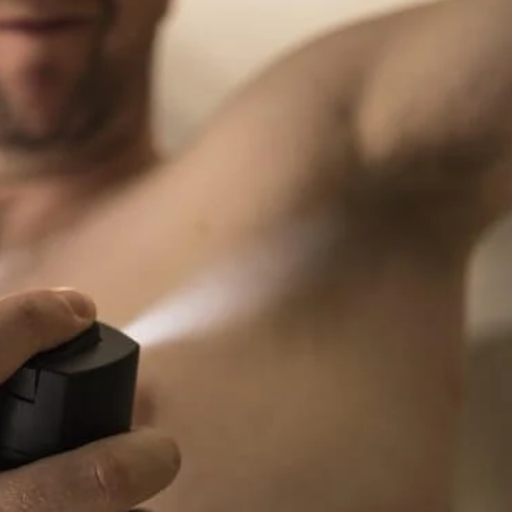
We do not recommend spraying perfume directly on your armpits or the underarm area. Sensitive skin, especially in the regions that sweat frequently, can be irritated by alcohol and other ingredients perfumed scents contain. Sprayed perfume mixed with antiperspirants or deodorants would also likely lead to some discomfort in the skin due to unwanted reactions. Applying perfume to the wrists, neck, and ears where the skin is not very sensitive is safer and allows the wearer to enjoy the scent without irritation.
Why the armpit is too sensitive for direct perfume application
Due to multiple physiological and anatomical reasons, the armpits are considered among the most sensitive body regions. Irritation, discomfort, and immediate, long-lasting damage to the skin could result from blasted perfumed scents. We discuss the reasons and associated issues in detail below:
- Thin Skin Layer
The skin in the armpit region has the thinnest layer among other human body areas. This region is more sensitive to mechanical and chemical harshness, such as perfumes containing alcohol and dryers.
- High Concentration of Sweat Glands
The armpits have a very dense concentration of apocrine glands that secrete sweat and some proteins. When combined with sweat, perfumes’ chemical components can cause skin irritation due to chemical reactions with sweat.
- Presence of Hair Follicles
Sweat and perfume chemicals can become trapped by hair follicles, which many people in this region have. This exposes the skin to irritants for a longer time, increases pore blockage, and raises the possibility of inflammation or Folicululitis.
- Risk of Allergic Reactions
Controlling allergens like essential oils or other fragrance chemicals in perfumes can provoke an allergy if used on sensitive skin. Inflammatory signs like redness, itching, or rashes can manifest.
- Friction and Sweat
The underarm area is highly dynamic and subject to movement and friction, especially from accompanying garments resting on the skin. With fragrance on the skin, this may lead to irritation, increased perspiration, and, in some cases, skin chafing.
- pH Sensitivity
The armpit area is slightly acidic. Perfume constituents can alter this balance, altering the local microbiome and causing skin issues such as odor or bacterial infection.
- Heat and Moisture
Due to the increased warmth and moisture of the body, armpits, in particular, serve as great reservoirs for germs. Spraying perfume can worsen the problem as it may interact with the bacteria, causing more pungent odors than masking them.
For these reasons, it is preferable not to use perfume directly on the armpit. Instead, you should use areas like the neck and wrist, which are far safer for healthy skin and where the fragrance can be enjoyed.
How perfume can interact with deodorant products
When perfume is sprayed over deodorants, the two must be mixed fragrances that will result depending on their chemical makeup. The type of deodorant applied may contain active components such as aluminum-based antimicrobials or odor-neutralizing bacteria, which reduce odor by causing sweating. A deodorant will also include perfume, which will lose odor and contain strong alcohol, and many sweet-smelling substances evaporating will be triggered by warming and movement.
Wearing perfume on top of deodorant may cause overlapping reactions for both products that may change their effectiveness or scent. To illustrate, the alcohol content in perfume may dissolve or weaken the active ingredients in a deodorant, which to some extent may make the deodorant less effective. Furthermore, combining the two different fragrances would likely result in some new fragrances. However, this unexpected fragrance could be unpleasant and doesn’t have to abide by the notes in the perfume. Some studies indicate that mixing incompatible products can result in light skin irritation in sensitive spots, highlighting the need for compatibility among personal hygiene products.
To minimize any undesired interactions, scent-free sticks should be used instead. This allows the true fragrance of the perfume to shine through unobstructed. Another option is to buy sticks from the same line as the perfume or brand, which are often made to work together.
Alternative ways to scent your underarm area safely
An equally safe substitute for conventional deodorants with scents would be the application of natural oils such as tea tree oil and coconut oil. These oils help lessen underarm odor because they have a mild, pleasant scent and some antimicrobial properties. Another method is baking soda combined with a few drops of essential oil as a DIY deodorant; however, some users may suffer from skin irritation, so patch-testing is recommended. For a quicker method, deodorant sprays made from plants and free of alcohol and aluminum will soften and soothe the underarm area without inflaming sensitive skin. Carrying fragrance wipes is also a safe and hygienic way to freshen up quickly.
What sensitive areas should you avoid when applying fragrance?
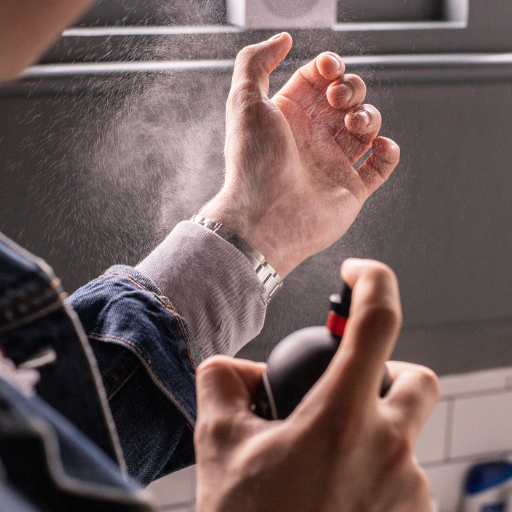
As with any cosmetic procedure, during a fragrance application, one must be careful and pay special attention to places with thinner skin to avoid too sensitive areas. Here are some areas of concern:
- The region around the nose and eyes.
- Any open cuts or wounds and sensitive skin such as bruises.
- Genital areas.
- Direct application within the nose or mouth.
Instead, It is recommended to apply fragrance to the wrists, neck, and behind the ears, which are pulse points that can be diffused naturally without causing discomfort.
Why you should never spray perfume near genitals or intimate areas
Perfume and body sprays near the mouth or nose must be avoided as skin peels or light scrapes can occur, causing extreme discomfort. The delicate skin in these areas is also prone to harsh inflammation. As such, perfumes often contain alcohol, synthetic chemicals, or other disruptive fragrance compounds that can alter pH equilibrium. An imbalance may lead to skin irritation, genital itching, or infections such as bacterial vaginosis and yeast infections. Furthermore, medical studies opine that many fragrances contain high quantities of parabens, which are known allergens and should be avoided, especially on delicate skin. As a rule, it is best, for hygiene and comfort reasons, not to use strongly scented products in sensitive places. Instead, these areas require specially formulated, gentler personal care products that are less irritating and neutral.
The dangers of applying perfume to extremely sensitive skin
The use of perfume on very delicate skin may increase the chance of suffering from skin irritation, redness, or even more serious reactions. As dermatologists suggest, perfumes usually have alcohol and other ingredients that can remove the skin’s natural oil, which serves as a protective barrier. This is particularly problematic for people who suffer from eczema or rosacea as this disruption tends to trigger their symptoms, intensifying flare-ups or overall discomfort. Research shows that some fragrances also contain phthalates and synthetic musk, which can potentially be endocrine disruptors when absorbed through damaged skin. Also, a study about skin allergies indicated fragrance as one of the most common causes of contact dermatitis, affecting 1-4% of the population. This data indicates how critical it is to avoid applying these perfumes onto sensitive areas of skin that are likely to be delicate.
How to safely scent delicate areas without irritation
Skin-friendly products should be used for easy application to minimize irritation when applying fragrance to sensitive body areas. Examples are fragrance-free and hypoallergenic products that do not contain irritants like alcohol, parabens, and phthalates. Other alternatives include natural essential oils, provided they are properly diluted, as they are less likely to contain synthetic chemicals that disrupt the skin’s barrier.
A patch test is strongly recommended before using any product in these areas. Apply small amounts to a less sensitive skin patch and wait 24 to 48 hours to see any reactions. Also, applying a moisturizer without any fragrance to the skin before application acts as a barrier and helps decrease irritation when added to the base layer.
Surveys show that almost 60% of people with sensitive skin reported that roll-on or solid perfumes are less irritating than sprays, as these formats tend to have minimal volatile components. In addition, applying fragrance to pressure points such as the wrist, behind the ear, and the outside of the clothing rather than on the skin helps reduce contact with delicate regions.
Following these suggestions will ensure you enjoy pleasant scents without damaging the skin.
Is it bad to spritz your perfume directly onto your hair?
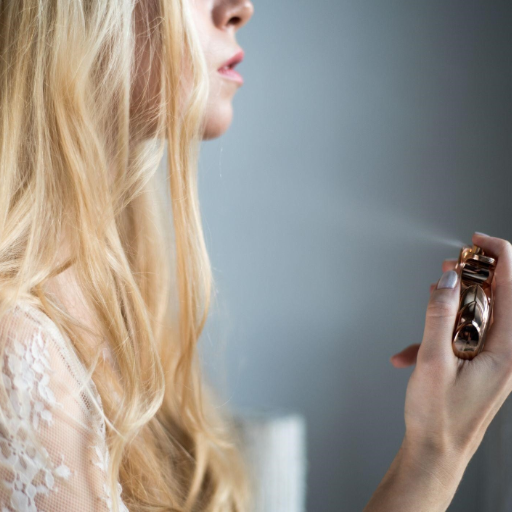
For the sake of your hair, it is better not to spray perfume directly on it as it can damage your mane. Hairsprays and alcohol-based products contain alcohol that can weaken your hair shaft over time, making it dry, brittle, and prone to breakage. To avoid damage, spray perfume on your hairbrush first, then brush your hair, allowing for an even distribution of scent without directly harming the hair. A more ideal option would be a hair mist explicitly designed to be safe for application on hair.
Why perfume can damage hair and cause dryness
Hair is typically considered a woman’s pride and joy, so using a substance that contains alcohol could seriously be detrimental. Ethanol, found in most types of perfume, evaporates quickly but not before stripping the hair of its moisture. Some scent-rectifying agents present in perfume could also contain allergens or aggravating substances that could amplify irritation to the scalp if overused. According to recent observations, continuous use of alcohol-infused products could be detrimental to the constitution of the oils in the hair and scalp, resulting in a lack of healthy hair in the world of hair and keeping hair free and clean means avoiding alcohol-based hair perfumes and head mists or using gentler approaches towards fragrance application.
Alternative methods for scenting hair safely
- Use essential oils
Carrier oils can be mixed with lavender, rosemary, or jasmine essential oils and lightly massaged into the hair. Unlike alcohol-based options, essential oils are less irritating and derived from natural sources. Moreover, essential oils are known to have some beneficial effects on the skin and scalp; some even help to hydrate and strengthen the hair.
- Apply scented hair oils.
Scented oils infused with nourishing components such as argan and coconut oil are now available for hair and skin. In addition to providing moisturizing benefits, hair oils also give off a refreshing scent without overpowering the hair while protecting against damage.
- Opt for alcohol-free hair mists.
Hair mists without alcohol are more hair-friendly alternatives to traditional perfume. These products are softer on hair and scalp and contain a wide range of scent options, but they do not infuse alcohol that’s damaging to hair.
- Spray perfume on hairbrushes.
Lightly spraying your favorite scent onto a hairbrush puts you in control over how much perfume is used. Brushing your hair this way distributes the scent without risking irritation to the scalp.
- Use scented dry shampoos.
Adding fragrance to dry shampoos helps keep hair smelling fresh between washes. These products can be very effective for those who want to add scent and soak up excess oil from the scalp. To minimize damage, choosing a formula without parabens or sulfates is best.
- DIY hair fragrance mist
You can create your hair mist by mixing a drop of essential oil and a small amount of glycerin with distilled water. Since this is a homemade alternative, you can rest assured about your hair’s gentleness while taking complete control over the ingredients.
With any of these methods, hair can smell delightful while avoiding the damage or irritation of alcohol-based products. As with everything, ensure the products correspond to your needs and sensitivities for the best outcomes.
The difference between hair mists and regular perfumes
Although hair mists and regular perfumes may seem similar, they are distinct in purpose and formulation. Hair mists are meant for hair and possess gentle formulas that lack the heavy dose of alcohol and sharp chemicals found in masks and regular perfumes. These products are usually softer and more nourishing, often containing essential oils or vitamins that help maintain the hair’s shine and health while adding a pleasant scent.
Regular perfumes, on the other hand, are designed to be used on skin or fabrics. These tend to have higher amounts of alcohol, enabling stronger scent projection. While effective on a person’s skin, these alcohol-infused formulas are drying and damaging when used directly on hair. The fragrance infused in these products tends to be faint but is designed to linger without dominating or clashing with other scents.
Hair mists are ideal for individuals looking for both scent and care. They offer good protection while providing adequate moisture to delicate hair strands. On the other hand, regular perfumes offer great scent but should generally be avoided on hair as they will create unnecessary damage.
Should you avoid spraying perfume on your wrists and elbows?
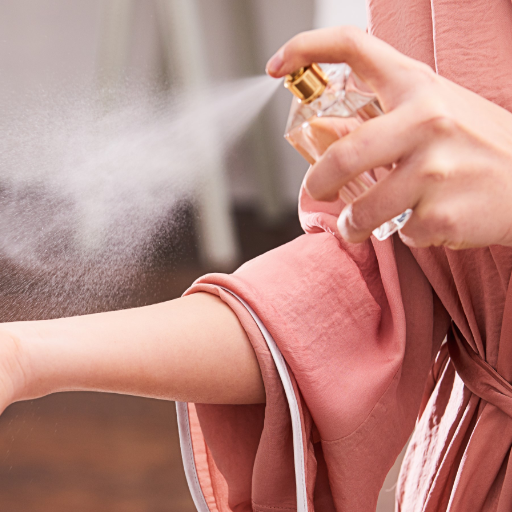
As long as the wrist and elbow areas are free of irritation, applying perfume on these parts of the body can prove effective as it emits some heat, which helps the fragrance diffuse and has the effect of a diffuser. Also, avoid rubbing wrists together after applying perfume, as this action may interfere with the fragrance and alter its composition. It’s best to use a patch test before wearing the perfume for sensitive skin. If you need other locations, behind the ears or on garments can serve as good spots without disrupting the fragrance.
Why does rubbing perfume on wrists decrease its longevity
Perfume rubbed on wrists immediately negatively affects the fragrance’s lumen because rubbing creates friction, breaking the fragrance into smaller parts. Evaporation is a process in which perfume is broken down into three sections, top, middle, and base, which evaporate at varying rates to create a layered scent experience. Rubbing wrists together interferes with the evaporation, too. Rubbing wrists together disrupts the evaporation of the top notes, which are highly volatile fragrance components, thereby causing them to evaporate too early. The life of the scent is also shortened, and the balanced orderly progression into the middle and base notes transitions. Natural oils and heat from the skin will further distort the fragrance and spoil its composition, causing the scent to lose depth layers and longevity. Research has shown that a gentle approach provides a more enduring and true scent.
Proper techniques for applying fragrance to wrists
Applying fragrance on wrists can be achieved best when the skin is clean and hydrated. Well-hydrated skin helps hold scent more, thus providing a more reliable and lasting aroma. Avoid rubbing wrists together, as this can shatter the fragrance molecules, altering their notes and significantly decreasing the scent’s length. If you are aiming for optimal effectiveness, applying fragrance on the wrists where the blood vessels are located beneath the skin, heat will naturally diffuse the scent throughout the day. Experts also note that for better longevity and amplified fragrance experience, applying a more concentrated essential oil formula such as eau de parfum is best. Also, not using too much helps maintain the fragrance’s subtlety and ensures it isn’t too strong.
When elbow application is appropriate versus harmful
When applying fragrance to elbows, I think the area works well when moisturized and not dry, making the fragrance last longer. On the other hand, I never apply fragrance to my elbows if the skin is irritated, cracked, or very dry because it might hurt or worsen the whole situation. Applying it to healthy and well-hydrated skin is the most important thing for me.
Reference Sources
1. “The Skin Physiology and Effects of Fragrance Application” (2021)
Source: Journal of Dermatological Science
This study explores the interaction between fragrances and skin types, focusing on areas where perfume should be avoided. It highlights that sensitive areas such as the eyes, mucosal surfaces, and irritated skin are prone to adverse reactions due to the high alcohol content in perfumes. The researchers employed skin patch testing on various participants to analyze irritation responses, providing evidence-based guidelines for safe fragrance application.
2. “Fragrance-Induced Contact Dermatitis and Risk Zones” (2020)
Source: International Journal of Dermatology
Through an extensive meta-analysis of dermatological case studies, this paper identifies anatomical zones most susceptible to contact dermatitis caused by fragrances. The neck, underarms, and broken skin were cited as high-risk areas. The methodology involved reviewing patient records and performing allergen-specific tests to determine sensitivity levels, emphasizing the importance of avoiding these regions for perfume application.
3. “Impact of Perfumes on Skin Barrier Function” (2022)
Source: Skin Research and Technology
This research investigates the long-term impacts of perfume on the skin’s barrier function, particularly in delicate or compromised areas like the face and underarms. Using advanced imaging techniques and barrier strength assays, the study concludes that these regions show heightened vulnerability to irritation and damage due to perfume ingredients, underscoring the need to limit exposure in these areas.
4. “The Role of Skin Hydration in Fragrance Absorption and Irritation” (2019)
Source: Clinical Dermatology Journal
This paper discusses how skin hydration levels affect fragrance absorption and potential irritation. The study utilized a cohort of participants with varying skin hydration levels and employed bioanalysis to measure fragrance penetration. Results indicated that perfume applied to dry or chapped skin greatly increases irritation risks, advising against such usage.
These studies provide valuable insights into best practices for perfume application while warning against spraying fragrances on sensitive or high-risk skin regions, ensuring safety and comfort.
Frequently Asked Questions (FAQs)
Q: Is the knee a good pulse point for perfume application?
A: The back of your knees is an excellent but often overlooked pulse point for perfume application. This area naturally emits heat, which helps diffuse the fragrance throughout the day, especially when moving around. However, avoid applying perfume on freshly shaved knees, as the alcohol in fragrances can irritate sensitive skin.
Q: What is the best place to spray perfume for longevity?
A: The best places to spray perfume for maximum longevity are pulse points where blood vessels are closest to the skin, such as wrists, neck, inside elbows, and behind the ears. These heat-emitting areas help the fragrance develop and project better. For an even longer-lasting scent, try spritzing some on your clothes (being careful of stains with darker fragrances) or applying a small amount to your hair, as hair naturally absorbs and holds fragrance well.
Q: Should I rub perfume on my hands after spraying?
A: Avoid rubbing perfume on your hands or between your wrists after application. This common mistake breaks down the fragrance molecules and alters how your favorite perfume develops. Instead, gently dab or let it air dry naturally. If you want to smell good throughout the day, carry a small sample of your fragrance for touch-ups rather than applying too much initially.
Q: Is it safe to spray perfume on my hair?
A: While hair naturally absorbs fragrances well, it’s essential to use caution when applying perfume. The alcohol in every perfume can dry out and damage your locks over time. Instead of spritzing the ends directly, spray your brush before brushing your hair, or use products specifically formulated for hair fragrance. This allows you to smell great without causing unnecessary damage.
Q: Are there any intimate areas where I should never apply perfume?
A: Yes, certain areas should be avoided altogether. The vagina and other intimate areas should never have perfume applied to them as this can cause significant irritation and potentially lead to infections. Even though you may want to smell good all over, fragrances contain chemicals and alcohol that can disrupt the natural pH balance of sensitive areas. This is a big no-no for health reasons.
Q: Can I spray perfume near my eyes or face?
A: Never spray perfume near your eyes or directly on your face. Though it might seem like a good idea to apply it directly to areas where you want to smell nice, perfume contains alcohol and chemicals that can cause severe irritation, redness, and even damage if they get into your eyes. Instead, spray perfume before you and walk through the mist, or apply it to safer pulse points behind the ears or neck.
Q: Will perfume stain my clothes?
A: Perfumes, especially darker or oil-based fragrances, can potentially stain your clothes. To prevent stains, wait for your perfume to dry thoroughly on your skin before dressing or spray perfume on clothes from at least 8-10 inches away. Suppose you’re concerned about a particular garment. In that case, it’s best to spray perfume on less visible areas or apply it only to your skin at pulse points where clothing won’t immediately come into contact.
Q: How can I make my perfume last longer throughout the day?
A: To make your perfume last longer, moisturize your skin before application, as dry skin doesn’t hold fragrance well. Apply your perfume to pulse points like the back of your knees, wrists, and neck, where body heat will help diffuse the scent. Layering products from the same fragrance line (using the shower gel, body lotion, and perfume) can also significantly extend longevity. Finally, storing your perfume away from heat and light will preserve its quality, ensuring it performs optimally when applied.

